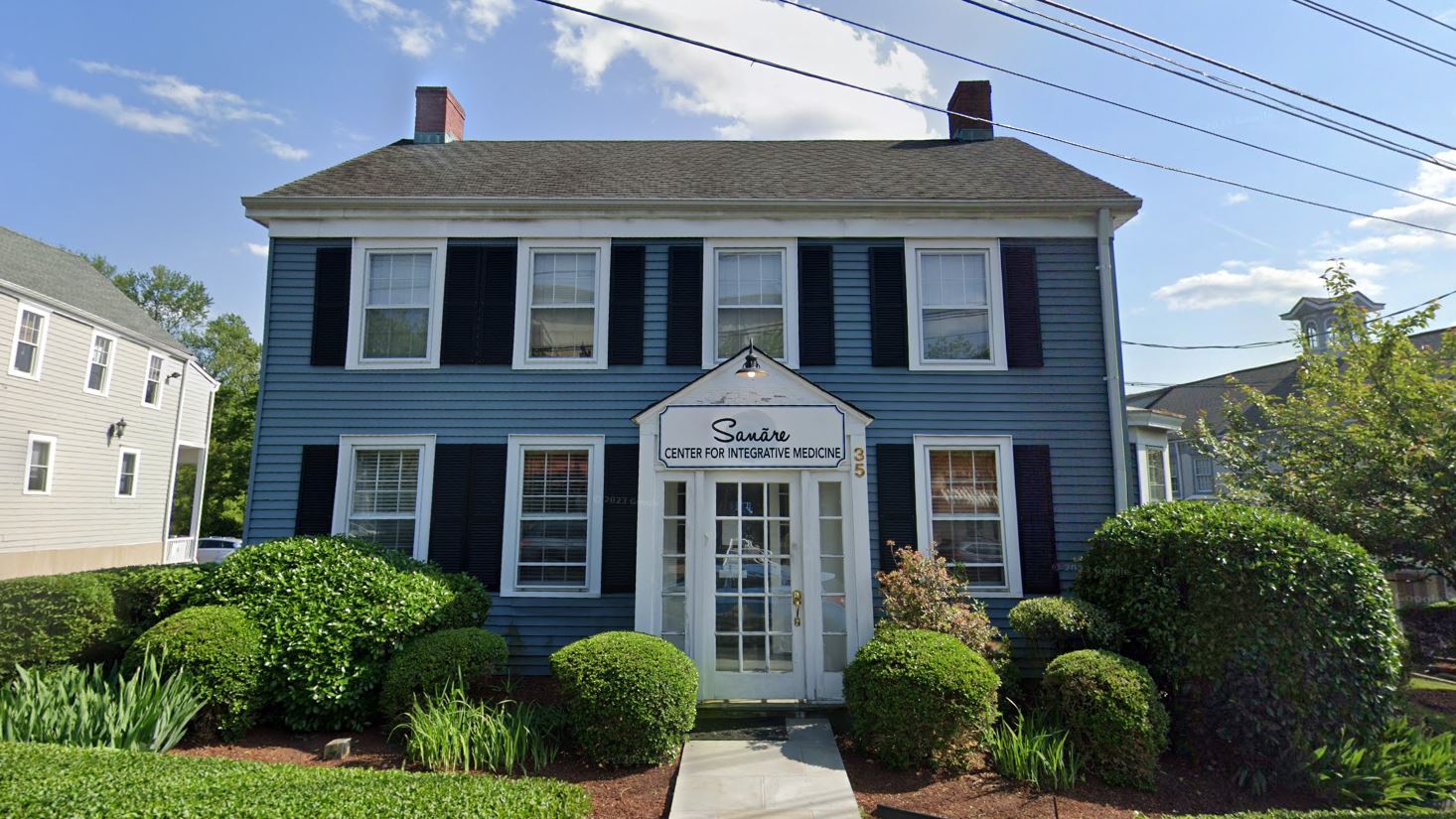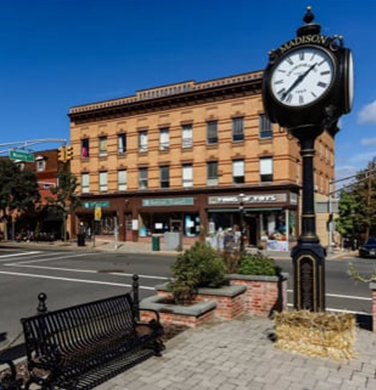At a time when buyers are developing land by razing old buildings to replace them with cookie-cutter “modern” farmhouses, there is a new property owner in Mercer County that is planning just the opposite. Margot Stern, who recently purchased the Titus Farmstead in Hopewell Township has an adaptive-reuse conservation plan that will be sensitive to the environment while honoring the history of the original owners.
The Titus family were among the first settlers of Hopewell Township in the early 1700s. By the time Joseph Titus died, in 1797, he had accumulated almost 300 acres where he developed his family farmstead. The main house on the property, built circa 1770, has a “grand manor” addition built in 1819. Other additions include a great room in 1840 and a 20th century kitchen with pantry. The property also contains several newer cottages and a 19th century stone bank barn.
According to the 2003 Hopewell Township Cultural Resource survey funded by NJSHPO, the manor house and barn are eligible for local, state and national designation because of the association with the Titus family as well as for the architecture of the house and barn. From this site, the family developed Titusville Village taking advantage of both the canal and the railroad along the river, which were integral to the success of Titusville and the Pleasant Valley farming district (a nationally recognized historic district).

The main farmhouse’s dining room with Margot Stern. Photo Credit – NJ.com
Margot Stern grew up visiting family friends who lived on a farm in this same area. “When I was little, I used to tell my dad that I always wanted to live on a farm,” recalls Stern. With an MBA from Wharton and a background in sustainable hospitality, Stern has a stewardship plan to convert the property into a high-end, 27-room boutique hotel with various touchpoints for her clientele to focus on sustainability.
“It was important for me to find something with soul and a sense of history,” says Stern, “to literally upcycle an existing place.” With that in mind, she has developed an ecological plan that will not only preserve the property but enhance it by removing invasive species (some which attract lantern flies) and reestablishing native ones that promote pollinators. She also plans to incorporate nature-focused activities for her guests so they can appreciate the environment, such as guided nature walks, bird watching, and star gazing.
Environmental stewardship and conservation are the cornerstones for the proposed plan. The project will provide improvements to storm water management and include a comprehensive environmental rehabilitation plan with native plants, permaculture, and restoration efforts and the replacement of lawn area with self-pollinating gardens and meadows. Native species plantings will also eliminate the need for irrigation since they thrive in their native environment.
Princeton Hydro, a storm water management and wetland restoration firm, is developing the engineering plans for the site to show that a unique property such as this one can be repurposed to be both sensitive to its history and the environment. The company sees Margot Stern’s vision as an excellent opportunity to integrate and enhance the property’s natural resources into the larger surrounding matrix of preserved open space.
“I have always supported historic preservation and believe that the character of a community is strongly influenced and linked to its human history as well as its natural history,” says Mark Gallagher, Princeton Hydro VP. “Although the preservation of the property’s existing structures is important to me personally, the site’s location in the center of a preserved landscape was even more important to me on both a personal and professional level.”

The dilapidated barn on the property, which is currently home to a family of vultures, Stern said. Photo Credit – NJ.com
Prior to Ms. Stern’s acquisition, the property had been unsuccessfully marketed for sale for nearly ten years. Subsequently, the home and outbuildings are substantially dilapidated while the grounds suffer from severe deferred maintenance. After restoration, there will be 13 estate rooms, 7 barn rooms, and 7 cottage rooms for a total of 27 guest rooms, including a full-service farm-to-table restaurant. Removal of the existing asphalt and gravel areas will result in a “greening” of the site around the properties existing improvements.
Eco-culture, eco-tourism and conservation will be fully integrated within and a key component of the hotel operations. Although the property has been known as Hollystone, Ms. Stern plans to name the new hotel “Hopewell” to connect it to the municipality and honor the ship that originally carried the Titus family from England to the Colonies.
“This region is so beautiful and so magical, that I saw an opportunity to do something very special,” says Stern. “As soon as I set foot on this property, I knew this was it.”
Other Links:Titus Farmstead Photos in Single File






